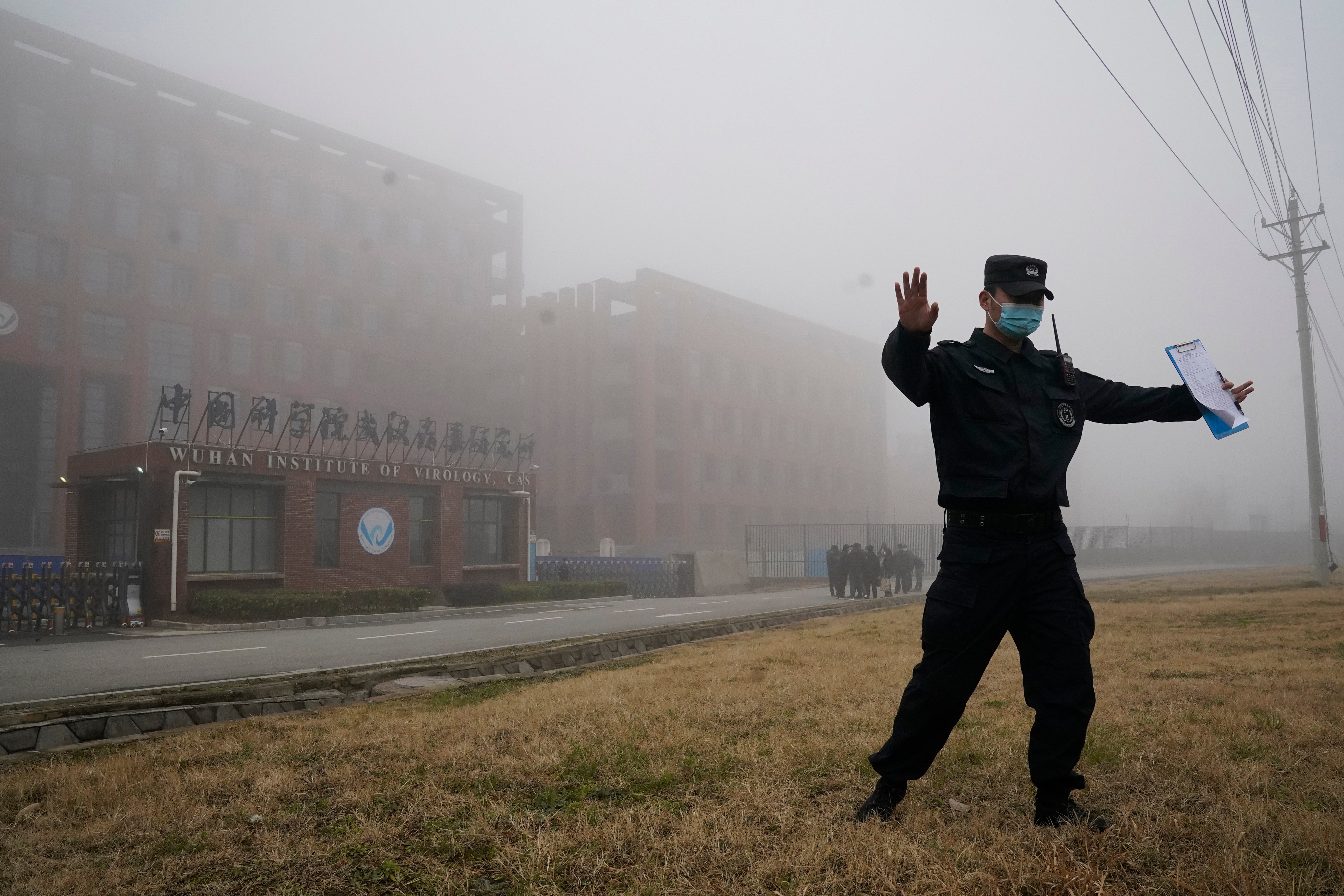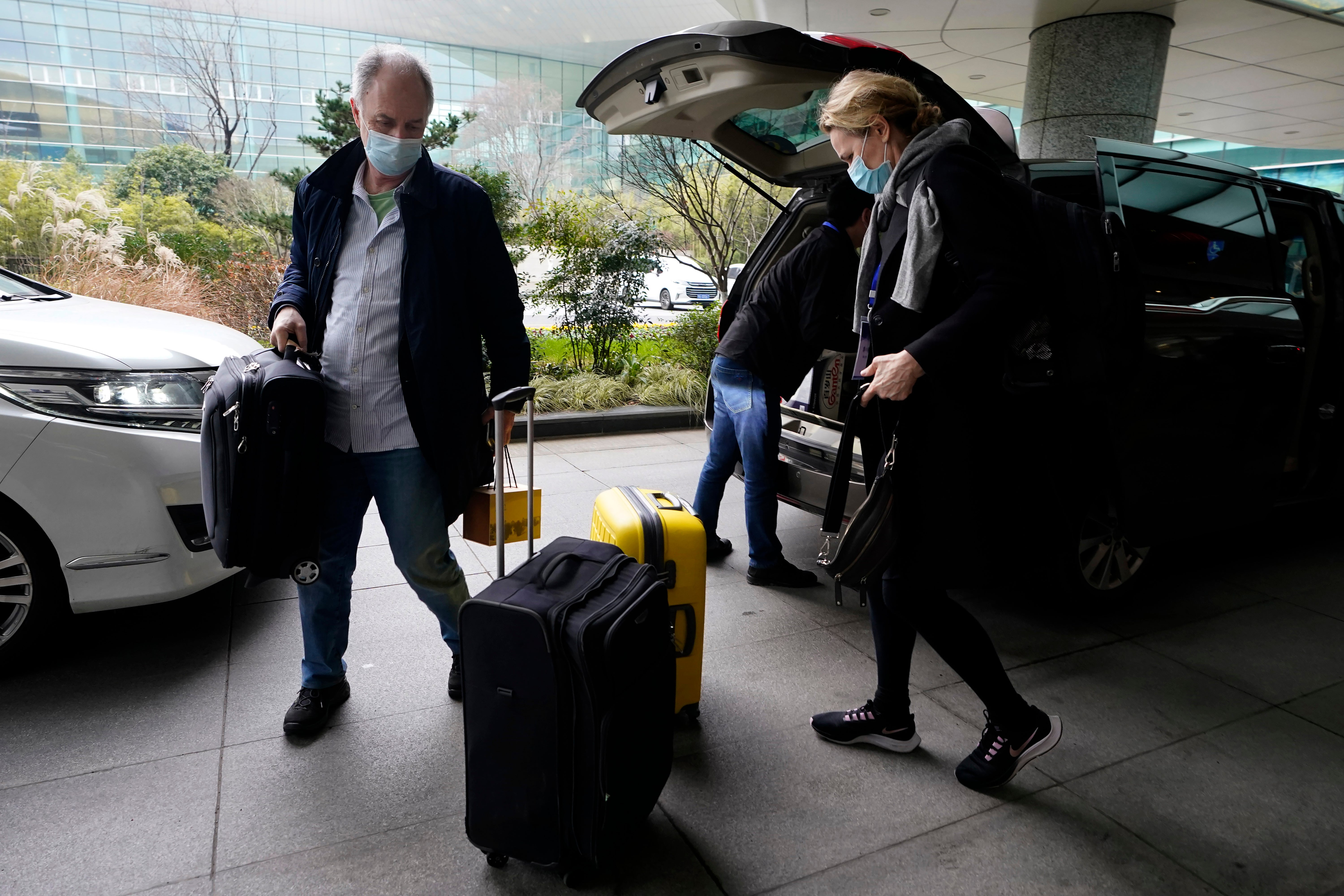WHO scientist does not rule out Wuhan lab leak as Covid origin
Professor John Watson says China remains ‘very, very possible source’ but reports virus was circulating elsewhere warranted further investigation
The World Health Organisation-led investigation into the origins of the Covid-19 pandemic must look beyond China, a UK scientist on the team that visited Wuhan has said, as he refused to rule out a lab leak as the possible source of the outbreak.
Professor John Watson, a former deputy chief medical officer, said while China remained a “very, very possible source”, reports that the virus was circulating in other parts of the world, notably northern Italy, as early as September and October, warranted further investigation.
“I think that there are all sorts of reasons to do with the way it did start and the outbreak in Wuhan and the various bits of information about the way in which these viruses live in different animal reservoirs that suggest that China is a very, very possible source,” he told BBC One's The Andrew Marr Show.
But he added that China was “by no means necessarily the place where the leap from animals to humans took place and I think we need to ensure that we are looking beyond the borders of China, as well as within China.”
A study released by the National Cancer Institute (INT) in Milan in November showed the new coronavirus was circulating in Italy in September 2019.

The findings, published by the INT’s scientific magazine Tumori Journal, revealed 11.6 per cent of 959 healthy volunteers enrolled in a lung cancer screening trial between September 2019 and March 2020 had antibodies for the virus.
A second study reportedly showed four cases dating back to the first week of October were positive for antibodies, suggesting they had got infected in September.
The WHO has previously said “the possibility that the virus may have silently circulated elsewhere cannot be ruled out”.
Prof Watson also said the possibility that the virus which causes Covid-19 was spread from a laboratory in Wuhan “remained on the table”.
Asked whether a leak was a potential source of the outbreak, he said: “It is not ruled out. We were able to go to the lab, we were shown around the lab, and we were then given the opportunity to talk to the scientists in the lab and there was no bar, no holding back on the questions.
“So for example we were very open about the issue that was being suggested that there was a possibility of a leak.”
He said the WHO team was able to probe scientists about the possibility of a leak, including asking about safety processes within the lab.
“We were very clear in our ability to be able to ask questions about all of that,” he said. “That is a hypothesis that remains on the table and could certainly have further work done on it.”
China has faced claims that the Wuhan Institute of Virology could be the suspected source of the Covid-19 virus.
Last week, a team of experts from China and the WHO concluded that it was “extremely unlikely” that the virus entered the human population as a result of a laboratory-related incident.
Prof Watson said the most likely source remained an “animal reservoir somewhere and that the infection got to humans, probably, through an intermediate host”.

He also raised questions about the amount of data the team was offered during its month-long trip to China.
He said quarantine and additional Covid measures in China meant “there were restrictions in what we were able to do” and acknowledged that the WHO team had not been presented with all of the available information.
Asked if he had seen the raw data relating to the 174 Covid cases identified in the first month of the pandemic, in December 2019, which are seen as crucial to understanding how the outbreak spread so rapidly, Prof Watson said: “We saw a very great deal about specifically those 174 cases.
“We discussed in very great detail with them exactly how those cases were identified. We discussed with them the analyses that they had done in relation to these cases and they presented in very great detail various tabulations and analyses around those cases, and we discussed those with them.
“We saw a certain amount of the raw data in the sense that we saw some of the line listing in relation to those cases. We didn’t see all of that and we didn’t see the original questionnaires that were used.
“But apart from the fact that they would have been in Chinese, one has to think about what one would have seen if they had gone to any other country in the world. It would be unusual for them to hand over the raw data, but we looked at a great deal of the information, in detail, in discussion with our Chinese counterparts.
“There was a lot of sharing of raw data. There is more data that we would like to have the opportunity to see and it would be easier if we had that.”
Prof Watson added the Wuhan visit was the “start of the process” that could last for years.
Dominic Raab, the foreign secretary, appearing on the same programme said it was important that the WHO was able to visit China but said: “We do share concerns that they get full co-operation and they get the answers they need.”
He said: “We'll be pushing for it to have full access, get all the data it needs to be able to answer the questions that I think most people want to hear answered around the outbreak, the causes.
”And that's important, not for geopolitical point-scoring or anything like that, but so we can learn the lessons and prevent it ever happening again.“
Join our commenting forum
Join thought-provoking conversations, follow other Independent readers and see their replies
Comments

Bookmark popover
Removed from bookmarks